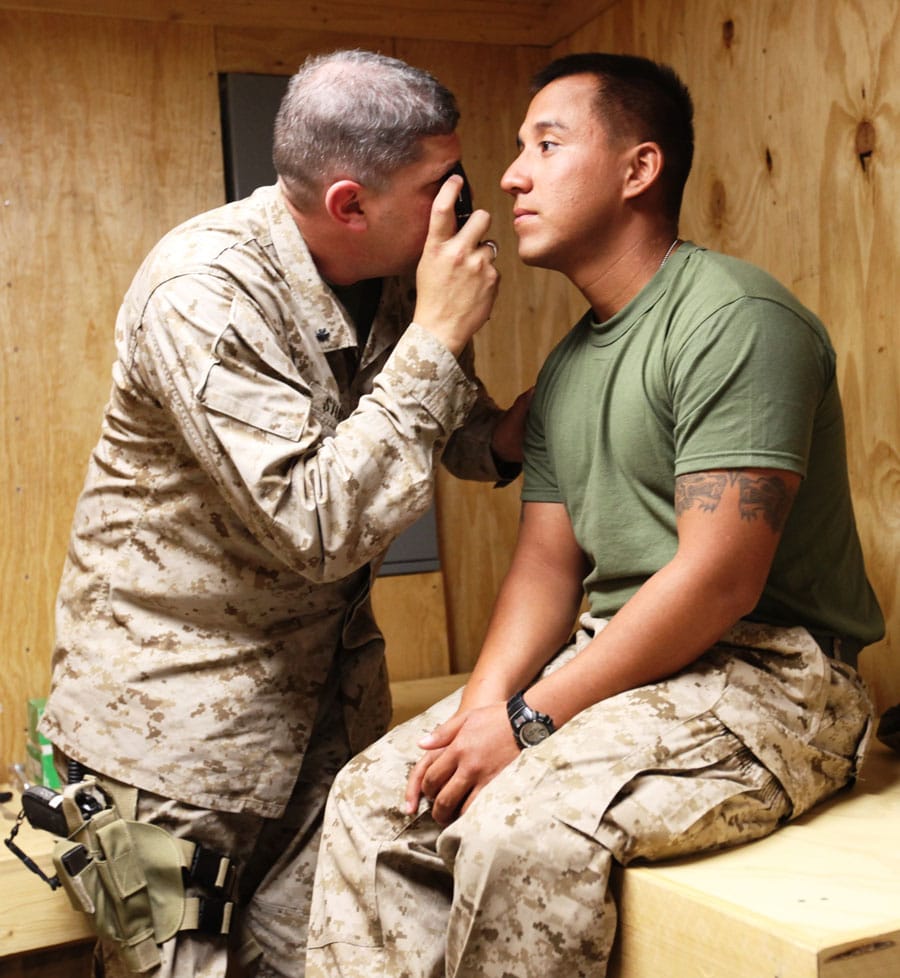11 January 2019
Study Update: VOMS Tool for Identifying and Tracking mTBI
EFFECTIVENESS OF A VESTIBULAR OCULAR MOTOR SCREENING (VOMS) TOOL FOR IDENTIFYING mTBI AND TRACKING RECOVERY IN MILITARY PERSONNEL
ANTHONY P. KONTOS, PHD, UNIVERSITY OF PITTSBURGH (PRIME); MAJ KATRINA MONTI, MPAS, JOINT BASE LEWIS MCCHORD (GENEVA)
Joint Base Lewis-McChord (JBLM)
Vestibular impairment and ocular motor dysfunction are prevalent among military personnel exposed to blast-related mild traumatic brain injury (mTBI), and research suggests that these symptoms may play a role in prolonged recovery and restriction from active-duty participation. The research team at JBLM is testing the Vestibular/Ocular Motor Screening (VOMS) tool to screen vestibular/ocular motor impairment and symptoms following mTBI. VOMS is a five-minute clinical screening tool that can be deployed by all levels of military medical personnel with minimal training and materials. By evaluating symptoms like headache, dizziness, nausea, and fogginess after performing a series of head and eye movements, service members can quickly and easily be evaluated following mTBI.
Preliminary findings indicate that VOMS can be reliably administered by military medical personnel, is stable over time in health personnel, and can discriminate concussed from healthy personnel. The data from the current study will provide empirical support for the VOMS, which has recently been added to the new Military Acute Concussion Evaluation-2 (MACE-2) as a standard of care assessment across the Military Health System


